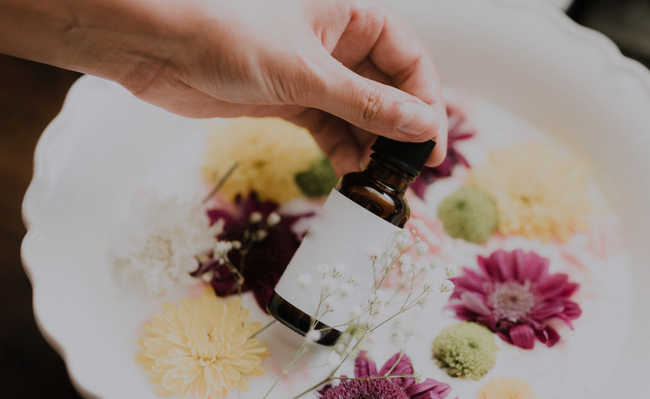Bergamot essential oil: uses and benefits
Bergamot essential oil has cosmetic use and medicinal benefits in aromatherapy

Edited and resized image by Kelly Sikkema is available on Unsplash
Bergamot essential oil is extracted from the bark of the fruits of the tree of the species. Citrus bergamy. The oldest roots of the bergamot tree can be found in Southeast Asia. Today, it is cultivated in many parts of the world, but it reached its prominence and name in the city of Bergamo, in southern Italy. The fruit is prized for its mild aroma, spicy flavor and wide range of uses, including its essential oil.
How to Use Bergamot Essential Oil
The citrus and characteristic scent of bergamot is used in personal care products for men and women. It can be found in perfumes, colognes, toiletries and cosmetics. Bergamot essential oil is still used as a flavoring in industrialized foods and beverages and also has medicinal value.
Bergamot essential oil aromatherapy
Bergamot essential oil is highly praised for its calming effect. To use it:
- Mix bergamot essential oil with a carrier oil such as coconut oil, sweet almond oil, jojoba oil, grape seed oil, sesame oil or other and apply as a body lotion or use it for massage ;
- Add two to five drops of bergamot essential oil to products such as shampoo;
- Add bergamot essential oil to perfumes, homemade candles, air fresheners, vaporizers or diffusers;
- Apply it to a bandana or scarf you are wearing.
Bergamot essential oil for acne and skin
Several compounds present in bergamot essential oil have antibacterial and anti-inflammatory properties, making it an effective treatment for acne in people who do not have sensitive skin. Its analgesic qualities can also make it effective against painful cysts and pimples.
- 18 Home Remedy Options for Pimple
To use bergamot essential oil as a spot treatment:
- Mix it with a carrier oil and apply directly to pimples, cysts and blackheads;
- Leave overnight;
- Do not perform this treatment during the day or in direct sunlight.
Bergamot essential oil for hair
To perfume and soften your hair, add a few drops of bergamot essential oil to your hair. shampoo habitual. You can also mix one to two drops with a tablespoon of carrier oil and massage into the scalp as a nighttime treatment.
- How to make hair grow fast and naturally
Using Bergamot Essential Oil with Other Essential Oils
Many other essential oils can provide similar benefits. Try experimenting with the ones you like and mix them up. Some to try include:
- Lavender essential oil: a classic scent in aromatherapy. It is often used in skin, hair and acne products and treatments;
- Tea tree essential oil: Approved for its antibacterial properties, it can fight acne and relieve skin inflammation;
- Chamomile Essential Oil: Soothes the skin and can lift the mood.
Benefits of Bergamot Essential Oil
Bergamot oil research has found several benefits. These include:
Reduces stress
A small study of women in Japan found that inhaled bergamot essential oil mixed with water vapor reduced anxiety and fatigue.
Likewise, one article concluded that aromatherapy with bergamot (among other essential oils) can relieve depression, anxiety and other mood disorders by signaling the brain to release dopamine and serotonin.
Fights food poisoning
Linalol, a compound found in bergamot, can sometimes be effective in fighting some bacteria responsible for foodborne illnesses.
One study examined the effectiveness of bergamot in fighting various strains of bacteria in chicken skin and cabbage leaves. The bacteria tested were:
- Staphylococcus aureus
- Listeria monocytogenes
- Bacillus cereus
- E. coli O157
- Campylobacter jejuni
The study results suggested that bergamot essential oil might be effective when used against these types of bacteria, but they also indicated the need for further studies.
Another study tested the effect of different types of bergamot essential oil against strains of bergamot. Listeria monocytogenes, the bacteria that causes listeriosis infection. The researchers used samples of listeria from different sources, including fish and birds.
- Salmon: an unhealthy meat
Different bergamot formulations had weak to strong effects by interrupting the growth of different bacterial samples.
lowers cholesterol
A review of human and animal studies indicated that the flavonoids found in bergamot may help lower lipid levels, although it indicates that the exact mechanism driving this result is unclear.
One study affirmed this finding. He also found that bergamot polyphenols had an anti-inflammatory effect on the liver of rats recovering from non-alcoholic fatty liver disease.
Reduces pain and inflammation
Linalol and carvacrol are compounds found in the essential oil of bergamot. A review of studies examined the effects of multiple essential oil compounds on pain response and other conditions in humans and animals.
He found that linalool and carvacrol had analgesic, anticonvulsant and anti-inflammatory properties when used in a variety of methods including application to the skin.
The review also indicated that the potential toxicological effects of essential oils on humans require further study.
Risks with the use of bergamot essential oil
Bergamot essential oil irritates the skin of some people, especially when it is not diluted in a carrier oil. Essential oils, including the essential oil of bergamot, can sometimes cause allergic dermatitis.
Symptoms of an allergic reaction or sensitivity to bergamot essential oil may include:
- Redness
- Urticaria
- burning sensation
- bubbles
- Pain
You must test it first before using it. Rub a dime-sized area of your forearm with the oil diluted in a carrier oil. If there is no allergic reaction within 24 hours, it is safe to use.
Be aware that using essential oils in a diffuser can have a negative effect on children, pets or pregnant women.
Bergapten, a compound found in bergamot essential oil, was shown to be phototoxic in a small 2001 study. This means that the skin is irritated or damaged when exposed to sunlight.
In addition to the essential oil, products that contain bergamot, such as perfumes, can cause a skin reaction. If you're concerned about your skin's sensitivity to sunlight, look for an essential oil-free version of bergamot.
The bergapten in bergamot essential oil is harmful if ingested. Even inhaling or using the essential oil topically can interfere with medication. Certain medications, such as ciprofloxacin, an antibiotic, also increase sensitivity to sunlight, increasing the impact of the essential oil of bergamot.
It is important to check the interactions of bergamot essential oil with other medications before using it. One way to do this is to seek pharmaceutical or medical advice about medications you are taking that may interact with essential oils.










